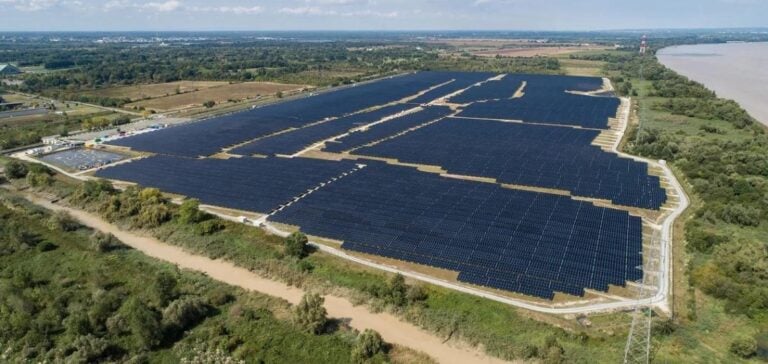The Syndicat des énergies renouvelables (SER) recently expressed the urgent need to review the government’s energy organization.
At a meeting with the press, SER President Jules Nyssen stressed the importance of creating an autonomous ministry entirely dedicated to energy and climate policy.
Currently, the energy portfolio is attached to the Ministry of Industry, a decision taken under Gabriel Attal’s government.
SER considers this organization insufficient to meet the complex challenges of the energy transition.
For SER, an autonomous ministry would be capable of developing a coherent strategy and implementing long-term policies.
This request comes at a time when Prime Minister Michel Barnier has spoken of the need to treat ecological debt at the same level as financial debt.
SER sees this statement as an opportunity to push for a reorganization of the government apparatus, which would enable more effective management of energy issues.
Challenges surrounding contributions on inframarginal annuities
Alongside this request for ministerial reorganization, SER is concerned about the possible impact of a new contribution on inframarginal rents, a measure proposed by the resigning Minister of the Economy, Bruno Le Maire.
This contribution targets electricity generation facilities exceeding 260 megawatts, accused of having benefited unduly from rising energy prices.
In 2022, this tax generated 400 million euros in revenue and 300 million in 2023, but is expected to bring in only 100 million euros in 2024.
The sector’s manufacturers consider this contribution to be an obstacle to their competitiveness.
In particular, they denounce a fiscal approach that could discourage investment in new production infrastructures.
In their view, the measure could be counter-productive, affecting their ability to invest in projects essential to the development of the renewable energies sector.
Potential impact on investment and competitiveness
Industry players are concerned about how these policies could influence investment decisions.
Regulatory uncertainty, coupled with high taxes on production, creates an environment that many consider unstable.
This could deter new market entrants and limit the ability of existing companies to expand.
France, seeking to strengthen its competitiveness in the European energy market, could find itself at a disadvantage as a result of poorly calibrated policies.
Many energy companies, particularly those investing in new or developing technologies, feel that the contribution on inframarginal rents is akin to a tax on production, which could jeopardize growth efforts.
They call for a more balanced approach that takes account of the State’s financial needs, while stimulating innovation and production in the renewable energies sector.
A political and fiscal framework to be redefined
SER’s call for a fully-fledged ministry comes at a critical time, when the entire French energy sector is seeking stability and regulatory clarity.
Decisions taken today, particularly on taxes and regulation, will shape the future of the French energy market.
Consideration of a contribution on inframarginal rents, although initially intended to correct perceived inequalities, shows how necessary it is to rethink the legislative framework to avoid undesirable side-effects.
It becomes essential to consider the wider economic implications of such measures, ensuring that they do not compromise the ability of businesses to operate effectively.
An independent ministry, with the primary mission of overseeing the energy transition, could offer more coherent governance tailored to the needs of the sector.
Long-term strategy and maintaining competitiveness
France’s energy development strategy will require clear, dedicated governance.
SER’s demands are in line with this logic: without a centralized and coherent vision, the ambitious objectives set by France for its energy policies risk not being achieved. Companies in the sector are calling for stable, predictable policies, essential for attracting significant investment and supporting innovation.
An independent Ministry of Energy, for example, could play a crucial role in coordinating efforts between the various energy players, both public and private.
The stakes are not just ecological or political, but economic and strategic for France’s future on the world energy stage.






















